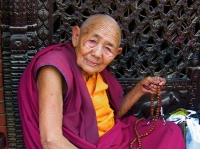The principles of surgery are in general based upon the theory of balance. However, the application of the theory is different. Ayurvedic surgeons point out that cases of surgery have to be treated by dividing them into two stages. The first or preparatory stage of treatment is concerned with subduing existing inflammation, and the second stage of treatment includes the actual operation and post-surgical healing.  To subdue the inflammation prior to surgery, eleven medical practices are presented which are chosen for application depending on circumstances. The operations and surgical healing practices include forty-nine medical applications that are similarly chosen and applied in different situations for proper treatment. Surgical treatment therefore includes altogether sixty basic kinds of medical applications that cover the major problems associated with surgery. These sixty medical applications are presented here in brief.
To subdue the inflammation prior to surgery, eleven medical practices are presented which are chosen for application depending on circumstances. The operations and surgical healing practices include forty-nine medical applications that are similarly chosen and applied in different situations for proper treatment. Surgical treatment therefore includes altogether sixty basic kinds of medical applications that cover the major problems associated with surgery. These sixty medical applications are presented here in brief.
General Principles of Wound Healing
Wound healing in surgery is a complex subject. Prior to, during and after surgery the wound has to be cleaned. The choice of the cleaning herbs mentioned should be arranged and varied to subdue the aggravation of Vata, Pitta or Kapha.
There are many external medicines used to speed wound healing. For complex (Sannipata) wound and sores, a reliable medicine for direct application is a paste made from Tila oil (sesame seed / Sesamum indicum), Haridra root (turmeric / Curcuma longa), Trivrit root (Indian rhubarb /Operculina turpenthum), ghrita (ghee / clarified milk), Nimba leaf (neem / Azadirachta indica) and madhu (honey). Another formula to heal complicated sores and wounds is Kaisara Guggulu.
Other wound-healing remedies include:
- Arjuna bark (Terminalia arjuna)
- Daruharidra bark/extract (barberry / Berberies aristata / B. nepalensis)
- Kovidara bark/flower (Bauhinia variegata)
- Nimba leaf (neem / Azadirachta indica)
- Tila oil (sesame seed / Sesamum indicum)
In addition to the use of these various applications prior to surgery, all procedures have to be followed by proper post-surgical treatment based upon the condition and needs of the patient. While treating patients who have undergone surgery due to trauma, use of Vata treatments to keep the nervous system balanced is especially important in addition to the usual proper stitching, bandage application and use of healing drugs. For example, medicated incense can be used against Vata aggravation.
Additional headings in this chapter*
Surgical Preparatory Practices
Surgical Practices
Venesection
0 Responses to “General Principles of Surgery”